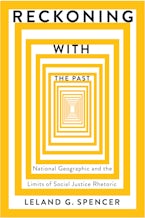Search Results
Showing results 1-10 of 954
Filter Results OPEN +

Following Michigan's Ink Trails
Writing Michigan, Reading Michigan
In the Charge of a Woman
Harriet Tenney, Michigan’s First Female State Librarian
In the Charge of a Woman
Harriet Tenney, Michigan's First Female State Librarian
Sufi Networks, Fulbe Itinerancy
A History of Islam in Senegambia, c. 1803–1996
When the River Burned
The Untold Story of the Jupiter Explosion
Kilimanjaro Porters and Guides
History and Tourism on Africa's Highest Mountain
Modernity in Motion
Reading Gerald Vizenor in Global Contexts
Reckoning with the Past
National Geographic and the Limits of Social Justice Rhetoric
The Handbook of Broader Impacts
Strategies for Enhancing the Societal Impacts of Research






